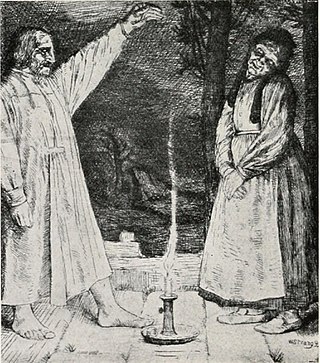
Robert Louis Stevenson was a Scottish novelist, essayist, poet and travel writer. He is best known for works such as Treasure Island, Strange Case of Dr Jekyll and Mr Hyde, Kidnapped and A Child's Garden of Verses.

Descendents are an American punk rock band formed in 1977 in Manhattan Beach, California, by guitarist Frank Navetta, bassist Tony Lombardo and drummer Bill Stevenson as a power-pop/surf punk band. In 1979, they enlisted Stevenson's school friend Milo Aukerman as a singer, and reappeared as a melodic hardcore punk band, becoming a major player in the hardcore scene developing in Los Angeles at the time. They have released eight studio albums, three live albums, three compilation albums, and four EPs. Since 1986, the band's lineup has consisted of singer Milo Aukerman, guitarist Stephen Egerton, bassist Karl Alvarez, and drummer Bill Stevenson.

Treasure Island is an adventure novel by Scottish author Robert Louis Stevenson, telling a story of "buccaneers and buried gold". It is considered a coming-of-age story and is noted for its atmosphere, characters, and action.

Erraid is a tidal island approximately one mile square located in the Inner Hebrides of Scotland. It lies west of Mull and southeast of Iona. The island receives about 1,000 millimetres (40 in) of rain and 1,350 hours of sunshine annually, making it one of the driest and sunniest places on the western seaboard of Scotland. It is attended by numerous uninhabited small islets, the largest being Eilean Dubh, Eilean nam Muc, Eilean Chalmain, Eilean Ghomain and Eilean na Seamair.
Departure, Departures or The Departure may refer to:
Wrecker, The Wrecker or Wrecking may refer to:
Merrymount or Merry Mount may refer to:
Body snatcher or The Body Snatcher may refer to:
"Markheim" is a short story by Robert Louis Stevenson, originally prepared for the Pall Mall Gazette in 1884, but published in 1885 in The Broken Shaft: Tales of Mid-Ocean as part of Unwin's Christmas Annual. The story was later published in Stevenson's collection The Merry Men and Other Tales and Fables (1887).

The Merry Men and Other Tales and Fables (1887) is a collection of short stories by Robert Louis Stevenson. The title derives from the local name given to a group of waves in the title short story, not from the Merry Men of Robin Hood tales.

Time After Time is a 1979 science fiction novel by American writer Karl Alexander. Its plot speculates what might have happened if H. G. Wells had built a real time machine to travel to the 1970s in search of Jack the Ripper.

The Merry Men are the group of outlaws who follow Robin Hood in English literature and folklore. The group appears in the earliest ballads about Robin Hood and remains popular in modern adaptations.
"The Merry Men" is a short story by Robert Louis Stevenson first published in 1882 in Cornhill Magazine 45-6. The story was later published in Stevenson's collection The Merry Men and Other Tales and Fables (1887). It is set on the fictional island Eilean Aros, based on the Isle of Erraid. The title derives from the local name given to a group of waves in the story, not from the Merry Men of Robin Hood and his merry men.
A merry-go-round or carousel is a popular amusement ride.
Suicide Club may refer to:
Frank Ross was a film producer, writer, and actor.

"Olalla" is a short story by the novelist, poet, essayist and travel writer Robert Louis Stevenson. It was first published in the Christmas 1885 issue of The Court and Society Review, then re-published in 1887 as part of the collection The Merry Men and Other Tales and Fables. It is set in Spain during the Peninsular War.

Strange Case of Dr Jekyll and Mr Hyde is an 1886 Gothic novella by Scottish author Robert Louis Stevenson. It follows Gabriel John Utterson, a London-based legal practitioner who investigates a series of strange occurrences between his old friend Dr Henry Jekyll and a murderous criminal named Edward Hyde.

"Thrawn Janet" is a short story, written in Scots, by the Scottish author Robert Louis Stevenson. He wrote the story in the summer of 1881 while he stayed at the rented Kinnaird Cottage in Kinnaird, a hamlet near Pitlochry, with his parents and wife. When he read the story to his wife Fanny Stevenson, she said of it that it "sent a cauld grue [shudder] along my bones" and "fair frightened" Stevenson himself. It was first published in the October 1881 issue of the Cornhill Magazine. It is a dark tale of satanic possession.
This page is based on this
Wikipedia article Text is available under the
CC BY-SA 4.0 license; additional terms may apply.
Images, videos and audio are available under their respective licenses.








